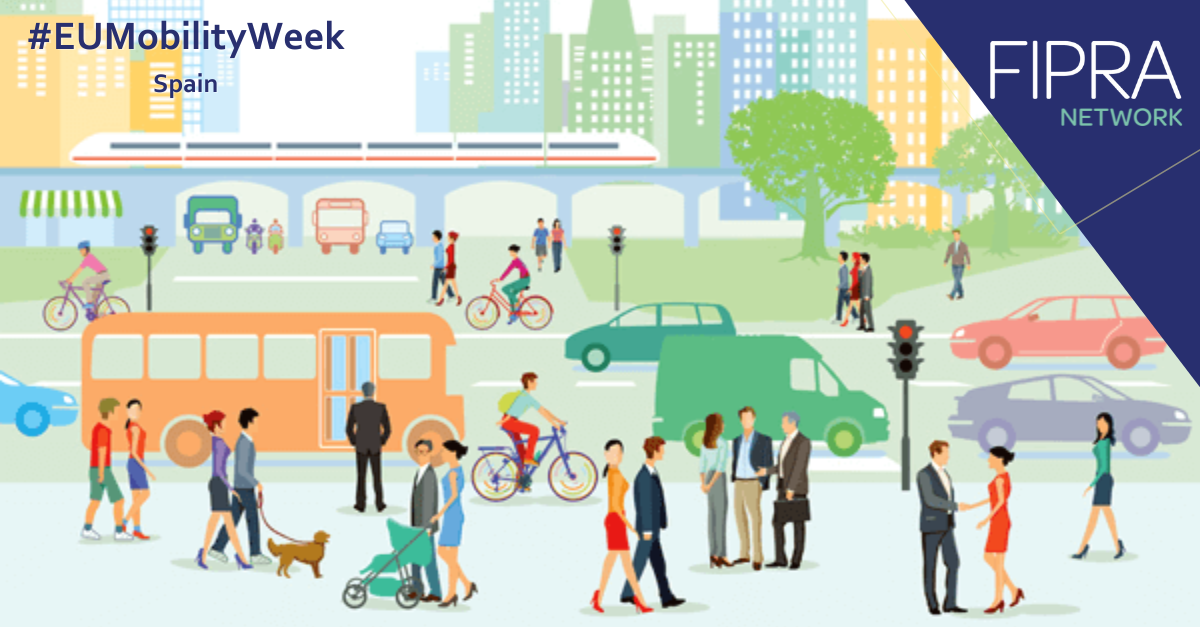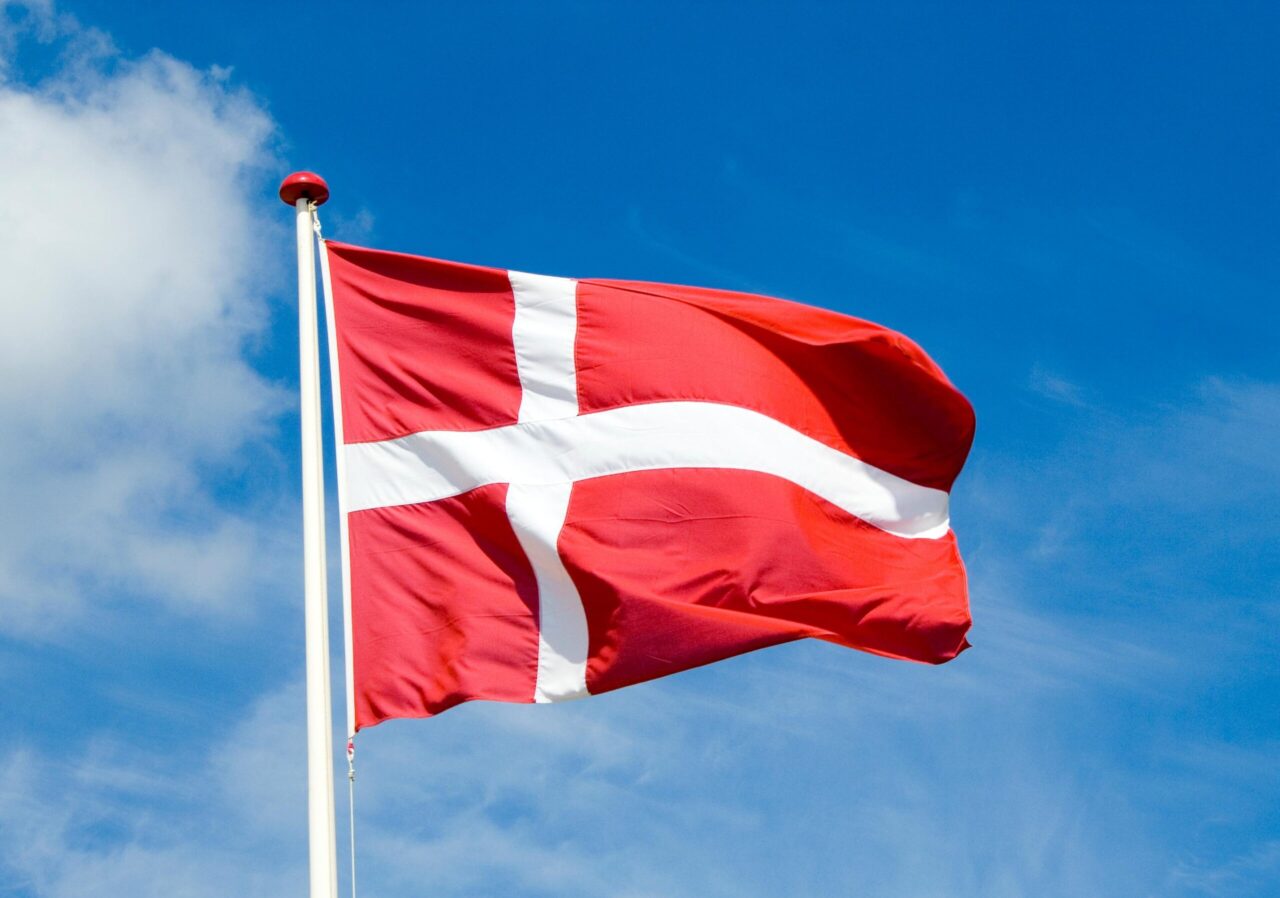policy impact with FIPRA
#EuropeMobilityWeek series – Spain update

The Spanish Government wants Spain to be the European leader in green and sustainable economic and social transition, with sustainable and shared mobility as one of the key elements in this process. With this in mind, Spanish stakeholders in the mobility sector have set themselves an ambitious agenda over the next years, one which is intended to deeply transform the Spanish mobility market and how Spaniards move from point A to point B.
Electrification of cars and trucks
The biggest transformation in Spain’s mobility market over the upcoming years will be the rapid electrification of Spain’s car and truck fleet. The Spanish Economic and Social Recovery Plan following the Covid-19 pandemic has an initial budget of 27.5 billion euros, 6.6 billion of which have been set aside to boost the electric vehicle. This will be done through investments articulated through public private partnerships, or PERTEs as they are known in Spain, that aim to create the right domestic ecosystem to speed up development and manufacturing of electric and grid-connected cars and trucks and to turn Spain into the European hub for electro-mobility.
New urban mobility alternatives
Urban mobility in Spain is already undergoing a profound change, with the appearance of new urban mobility alternatives to private vehicles and public transport networks. These alternatives include new short-term car rental services, also known as car sharing, ride hailing operators competing with taxi services and e-scooters, e-moped and e-bike rental providers. Other alternatives are expected, including driverless cars, drone aircraft taxi services, and on-demand collective transport, which combines ride hailing and ride pooling under one app and one vehicle, to name a few.
Urban mobility in Spain is already undergoing a profound change, with the appearance of new urban mobility alternatives to private vehicles and public transport networks.
SebastiaN Mariz
In order to make room for these new mobility alternatives and to create the appropriate regulatory and policy framework to allow for their coexistence with traditional urban mobility alternatives, the Ministry of Transport is working on a national Sustainable Mobility Law. The new law will encourage digitalization of mobility and the use of open data which will promote development of multimodal mobility for cities and encourage innovation in mobility. It will also set a framework for the creation of mobility regulatory sandboxes that will allow mobility stakeholders and public authorities to experiment with new solutions in a limited test environment.
A draft of the new Law was published in March of this year, and the parliamentary adoption process is expected to take place this autumn with the new entering into force by the end of the year, or in the first quarter of 2023.
On the other hand, in compliance with European Union directives and the Spanish Climate Change Law, by the end of 2023, most Spanish cities with more than 20,000 inhabitants will have established Low or Zero Emissions Zones (LEZ) to improve air quality. Implementation of these zones, usually in city centers, will mean restricting use of petrol- and diesel-powered vehicles in city centers. Doing so will further bolster the appearance and development of new mobility alternatives, multimodal mobility and the purchase of electric and hybrid vehicles by consumers.
Electrified ports and urban air mobility
Ground transport is not, however, the only transport sector set to undergo a deep and profound transformation in Spain over the upcoming years. Both maritime and air transport are also expected to undergo significant and deep changes.
Climate change mitigation targets, air quality requirements and the sustainable transformation of fuel sources through the adoption of a new European maritime fuels Directive set for this autumn, means maritime cargo and passenger shipping in Spain will be undergoing deep changes in both their ships and docking operations. Ports will also be playing their role in this process, with several port electrification projects in the pipeline and financed under the Spanish economic and social recovery plan. These projects will make it possible for both cargo and passenger ships to connect to the electricity grid and to turn off their fuel oil burners while docking at port. This will help reduce NOx and SO2 emissions while loading and off-loading cargo and passengers. Publicly funded projects are also looking into fuel alternatives to maritime shipping fuel, including methane, hydrogen or nuclear power vessels.
Since the adoption in 2014 of new provisions regarding airspace and aviation safety, in order to allow for the use of drones for package delivery in Spanish cities, Spain has registered a 200% increase in the registration and certification requests for drone operators and pilots. With the expected arrival of drone air taxi services in the near future, and the continued presence of illegal drones and drone pilots, new legal and regulatory developments are expected in the creation of an Urban Air Mobility space, which is safe for both passengers and residents on the ground.


